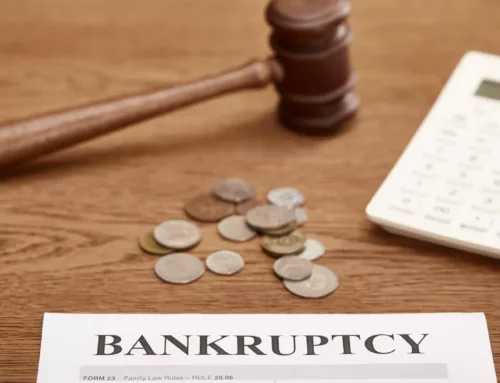Are you suffering from financial hardship due to a sudden loss of job, serious illness, costly medical bills, or excessive debts? These might be some of the reasons why you fail to make monthly mortgage payments on time. If you’re struggling to pay off your mortgage according to the original home loan payment agreement, you can consider filing for a loan modification. The goal of a loan modification is to help a troubled homeowner catch up on any past-due mortgage payment and avoid foreclosure. A competent Royal Oak bankruptcy attorney can help you determine if a loan modification can help you ease your financial burden. The article will answer the following questions to help you understand how loan modification works:
- What is a Loan Modification?
- How Do I Qualify for a Mortgage Loan Modification?
- How Do I Apply for a Loan Modification?
- Is Loan Modification Good For Me?
- How Does a Mortgage Loan Modification Affect My Credit?
- What are the Different Mortgage Modification Programs?
What is a Loan Modification?

A loan modification is a change made to the terms of an existing loan by a lender. It may involve a reduction in the interest rate, an extension of the length of time for repayment, a different type of loan, or any combination of the three. Such changes are usually made because the borrower is unable to repay the original loan.
How Do I Qualify for a Mortgage Loan Modification?
The qualifications for a home loan modification may vary depending on the guidelines of the mortgage lender and the type of loan. These are typically based on the amount that you owe, the property being used for collateral, and specific features of the collateral property. Not all debtors who struggle financially can be entitled to a loan modification. An experienced Royal Oak bankruptcy attorney can help you determine if a loan modification will work best for you. To qualify for a home mortgage modification, you need to prove that:
- you’ve suffered from financial hardship (divorce, job loss, or disability)
- the house is your primary residence (homeownership)
- that your gross monthly income is just enough to make regular monthly payments under a modification
Before the approval of a loan modification, you need to undergo a trial period plan (usually 3 months) to show that you can afford the modified amount under the new mortgage terms.
How Do I Apply for a Loan Modification?
A mortgage loan modification application will require you to declare your financial information (proof of income, auto loan, or credit card debt), residential mortgage information, and the specifics of the hardship situation. To apply for a mortgage modification, you have to get in touch with your servicer’s home retention department to request loss mitigation. You need to include the following details in your application:
- personal information
- property information
- bank statements
- recent payslips or pay stubs
- a hardship letter or affidavit
- tax returns
Is Loan Modification Good For You?
Knowing the possible outcomes and effects of mortgage modification can help you decide whether it is the right option for you. Loan modification comes with both advantages and disadvantages. There are some major benefits to modifying your loan if your situation qualifies you. A mortgage adjustment can:
- Stop foreclosure or prevent the foreclosure process
- Lower your monthly mortgage payment
- Help you catch up on any late payments
- Resolve delinquency status
- Cause lesser damage to your credit than a foreclosure
On the other hand, there are some disadvantages of the loan modification process. Modifying your loan can:
- Hurt your credit score
- Raise your total loan amount
- Require you to pay extra fees
- Be reported as debt settlement
- Show that you didn’t fulfill your mortgage contract
- Still result in foreclosure, depending on your lender
How Does a Mortgage Loan Modification Affect Your Credit?
Creditors may have the right to report your loan modification request to the national credit bureaus. Its appearance on your credit report could adversely affect your credit score. The long-term effect of a mortgage modification typically will be less severe and long-lasting than the damage done by foreclosure.
In the case of mortgage modification programs that require you to be delinquent on your payments to qualify, your credit report will reflect missed payments in addition to the modification. If a mortgage modification works as planned, it will allow you to keep your home. Once you can resume on-time mortgage payments, you will be well-positioned to rebuild your credit and improve your credit score within a few years. However, for homeowners on the brink of losing their homes, the benefits of a loan modification can far outweigh the potential credit risks and extra interest.
What are the Different Mortgage Modification Programs?
Nowadays, most lenders and loan servicers offer several loan modification assistance programs. Depending on the circumstance and type of your mortgage, you may be eligible for a government loan modification program. Several options can be offered for borrowers with VA-guaranteed, Fannie Mae and Freddie Mac, FHA-insured, and USDA mortgages. For instance, if your mortgage is owned or guaranteed by either Fannie Mae or Freddie Mac, you may qualify for this program.
The Role of a Bankruptcy Attorney in Loan Modification
Before you apply for a loan modification, it is important to have enough knowledge regarding loss mitigation laws and the mortgage modification process. Therefore, it is advisable to schedule a consultation with our reliable Royal Oak bankruptcy attorneys at Hammerschmidt Stickradt & Associates. Our bankruptcy law firm will help you know if a loan modification is more ideal given your situation.



